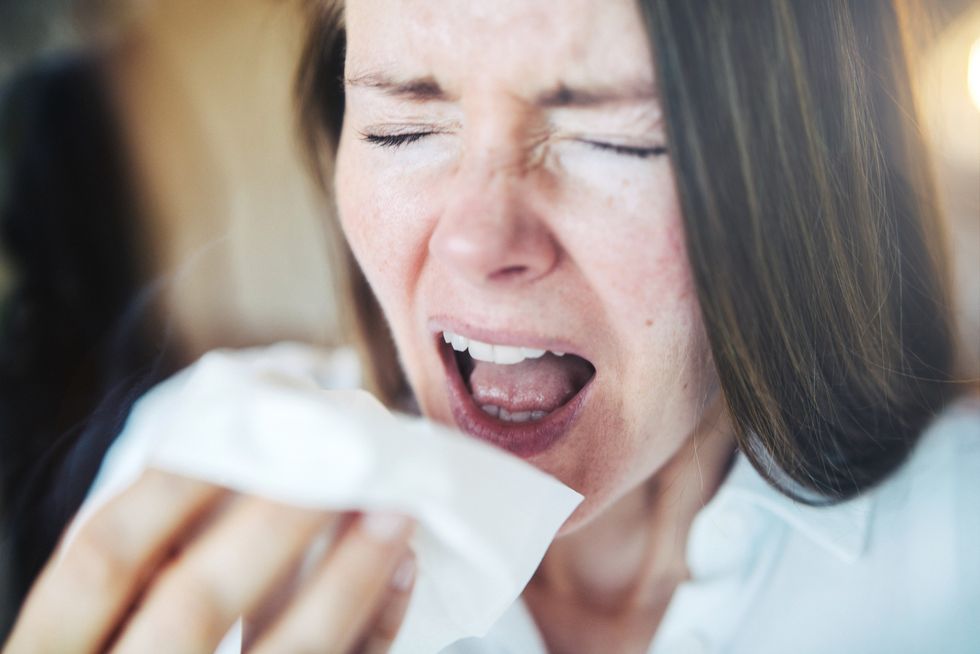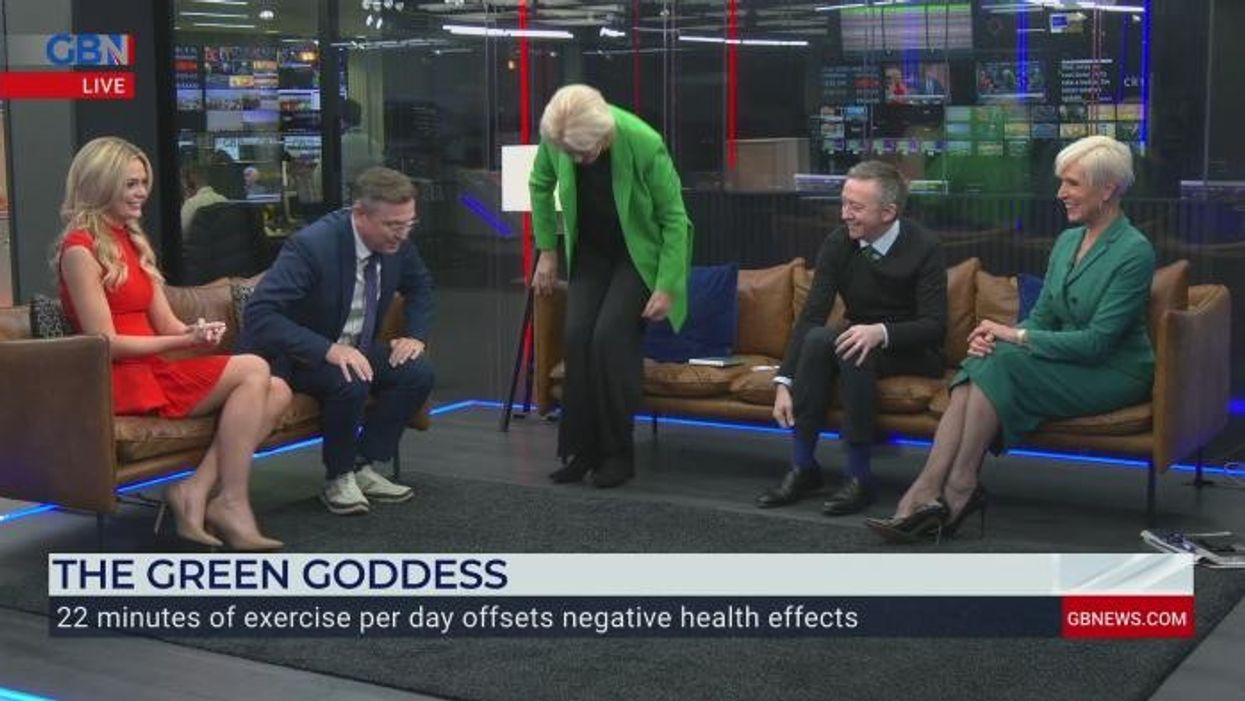Doctor shares how Britons can avoid becoming unwell - including supplement he would 'prescribe to everyone in the UK'

A doctor shared five tips for Britons to improve their immunity to illness
Don't Miss
Most Read
Latest
Many Britons are feeling worse for wear as the January chill sets in, suffering from a persistent cough, sniffly nose and lingering sore throat.
But according to a doctor, it's possible to stop yourself from feeling so poorly with just a few diet and lifestyle hacks. This includes taking vitamin D, which he would recommend for "everyone in the UK".
GP, Dr Kaywaan Khan, founder of Harley Street’s Hannah London Clinic, shared why people tend to get ill multiple times in a row and how they can reduce how often they feel poorly.
Dr Kaywaan Khan said: "Getting ill multiple times in a row can be a frustrating experience, which could be due to several factors. The common cold and flu are caused by different viruses, and there are many strains of each. Some viruses, like influenza, mutate frequently resulting in new strains that your immune system may not be able to respond to yet. This could lead to catching the flu several times, especially if you have not received a flu vaccine yet.

'Getting ill multiple times in a row can be a frustrating experience'
|GETTY IMAGES
"As well as this, during winter months people are indoors more often, so it is easier to spread different viruses from one person to the other. Some studies also suggest that influenza viruses survive and transmit better in colder, drier air, as the virus particles stay airborne for longer in cooler temperatures.
"When we get ill, our immune system becomes compromised. While it's understandable to be eager for a fast recovery, individual time required for a complete recovery can vary. Signs of a lingering illness can include symptoms such as fatigue, a sore throat, or a cough. These symptoms could be mistaken for a new illness, when in actuality, you need to give your body more time to recover.
"If you do not give yourself adequate time to recover from the first illness, you could be susceptible to catching a secondary bacterial infection on top of the initial viral infection, because your immune system is already weakened.
"If you have existing medical conditions, such as autoimmune diseases, diabetes, or asthma, this can increase the likelihood of repeated infection."
How Britons can boost their immunity
Supplement Vitamin D
The doctor said: "As much of an advocate as I am for holistic and natural approaches to boosting your immune system, there is a pill that most of us should be taking and will likely struggle without in the UK.
"Vitamin D supplementation is something I would prescribe to everyone in the UK because of the lack of sun and the lack of time we spend outdoors in the sun.
"Furthermore, due to the skin-damaging effects of the sun, we advise many people to avoid excessive sun exposure. Therefore, vitamin D (cholecalciferol) supplementation has become even more essential."
Up your Vitamin C intake
The doctor recommended getting some more Vitamin C - and the natural stuff where possible.
The doctor said: "Vitamin C has long been glorified as the supplement to take to prevent a cold. While there is plenty of evidence that supports the use of Vitamin C to boost the immune system and reduce the risk of infections, it is important to note that the synthetically manufactured Vitamin C you take in the form of a pill can cause more harm than good due to their artificially high doses.
"They are unlikely to be superior to the more readily available alternative, nature’s fruit and vegetables, which also contain other vital nutrients and prebiotics in a perfectly packaged combination that is too complex to put into a pill."
The expert advised aiming for 200mg of Vitamin C per day from natural sources before turning to artificial alternatives. A broccoli and sweet potato salad washed down with a side of orange juice is a great immune-boosting meal.
Stop smoking and avoid binge drinking
Dr Kaywaan Khan advised Britons to ditch their unhealthy habits. He said: "Optimising your immune system requires avoiding harmful toxins as well as supplementing with the nutrients mentioned above. Smoking has been extensively studied and compromising your lungs with cigarette, sheesha, or vapour smoke is not wise."
Giving up smoking is not an easy feat so the doctor urged smokers to use the support available to them, for example the NHS recommended tools.
He continued: "Furthermore, there is a clear association between binge drinking and increased susceptibility to infection. It’s safer to avoid alcohol and obtain your anti-oxidant polyphenol sources elsewhere, such as dark chocolate in moderation."
LATEST DEVELOPMENTS

Orange juice is a great natural source of Vitamin C
|PA IMAGES
Massage therapy to ease chronic stress
The doctor urged Britons to sit back and relax to reduce their risk of feeling ill.
He said: "Chronic stress can suppress the immune system, making the body more susceptible to illness. Massage therapy is known to promote relaxation and reduce stress by lowering cortisol levels and increasing the production of serotonin and dopamine.
"Treat yourself to a 30-minute back, neck and shoulder massage which will ease muscular tension whilst keeping the mind calm.
"Massage is a great way to provide relief from the pain of chronic stress, such as tension headaches or back pain. By relaxing the body and mind, you can improve your sleeping patterns so your body can have better repair and restoration that contributes to overall immune function too."
Practice good hygiene
The doctor urged Britons to wash their hands frequently with warm, soapy water. According to the expert, this is an "easy step you can take to effectively remove germs you could have caught from other individuals, and prevent transmissions from surfaces to your face".
He also suggested limiting contact with unwell people. Cover your mouth and nose when you cough or sneeze, so as not to spread any illness yourself.











